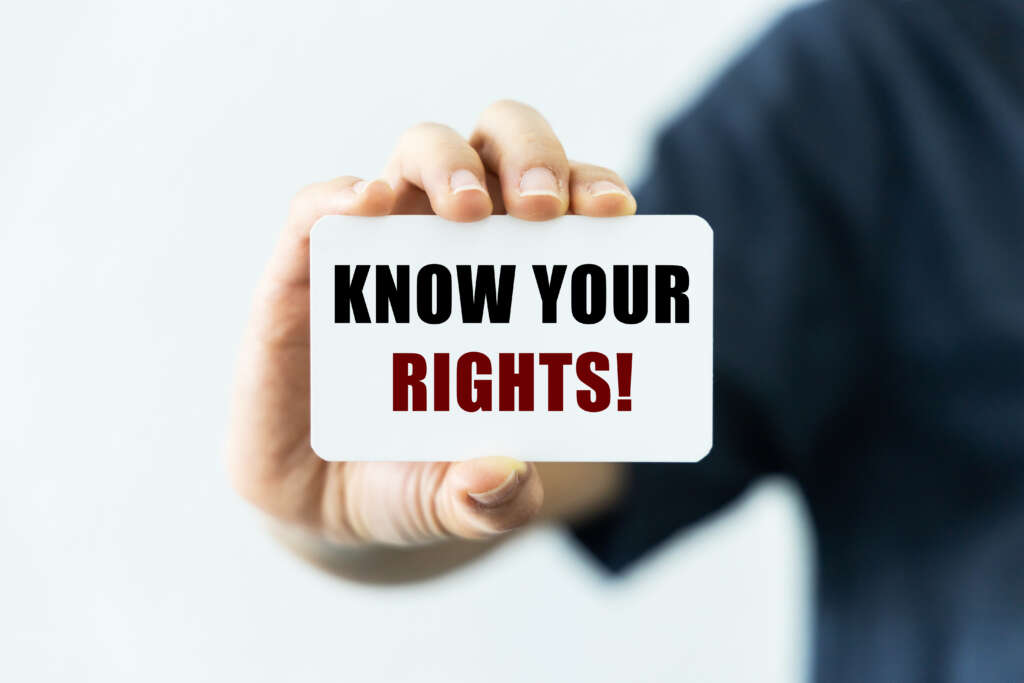Share This Article
Companies can’t just take your money and run, lie about their products, or trick you into paying hidden fees. When they do, consumer protection laws provide powerful weapons to fight back and get your money returned.
Recent enforcement actions show these laws have real teeth. In 2025 alone, the FTC has secured millions in refunds for consumers, banned companies from deceptive practices, and imposed hefty penalties on violators. Understanding when companies cross the line and what you can do about it can save you thousands and protect your rights.
Federal Protection: Your First Line of Defense
The Federal Trade Commission (FTC) serves as the nation’s primary consumer watchdog, enforcing laws that prevent fraud, deception, and unfair business practices. The FTC Act prohibits “unfair or deceptive acts or practices” in commerce, giving the agency broad authority to protect consumers.
Recent FTC Victories for Consumers:
- Auto dealerships: In June 2025, the FTC filed complaints against Texas dealerships for “payment packing,” where dealers convinced consumers to agree to higher monthly payments than needed, then added unwanted services to justify the difference
- Weight-loss scams: NextMed agreed to pay $150,000 for using fake reviews and deceptive claims about their weight-loss programs
- Tech support fraud: The FTC returned over $25.5 million to consumers tricked by deceptive computer repair services
Warning: Companies increasingly use sophisticated tactics to hide violations. Auto dealers might process your payments to maximize overdraft fees, subscription services make cancellation nearly impossible, and weight-loss companies create fake testimonials to lure customers.
State Consumer Protection: Where the Real Action Happens
While federal agencies grab headlines, state attorneys general often provide faster, more direct help for consumer problems. Every state has consumer protection laws that broadly prohibit misleading, unconscionable, and deceptive business practices.
State attorneys general can:
- Issue civil penalties up to $50,000 per violation in some states
- Obtain refunds and restitution for harmed consumers
- Shut down fraudulent businesses through injunctions
- Negotiate settlements without lengthy court proceedings
Recent State Enforcement Examples:
- Maryland: Issued a $4.4 million penalty against a home improvement contractor who failed to complete projects consumers had already paid for
- Connecticut: Secured a $1.5 million judgment against Carvana for delaying title documents and poor customer service
- Texas: Aggressively enforced new data privacy laws, pursuing violations for unauthorized data sharing
Common Violations You Should Recognize
Companies cross the line in predictable ways. Learning to spot these violations helps you know when you have legal recourse:
Deceptive Advertising and Marketing:
- False claims about product benefits or effectiveness
- Bait-and-switch tactics where advertised products aren’t actually available
- Hidden fees not disclosed until checkout or contract signing
- Fake reviews or testimonials from non-existent customers

Subscription and Billing Scams:
- Negative option billing where companies automatically charge for services you didn’t explicitly agree to continue
- Impossible cancellation processes requiring multiple phone calls or certified letters
- Free trial traps that automatically convert to paid subscriptions without clear notice
Data Privacy Violations:
- Unauthorized data collection or sharing without proper consent
- Failure to honor opt-out requests for data sales or targeted advertising
- Inadequate security measures that lead to preventable data breaches
When and How to Fight Back
You have multiple options when companies violate consumer protection laws, and you don’t always need a lawyer to get results.
Start with Direct Action:
- Document everything: Save emails, receipts, screenshots, and records of phone calls
- Contact the company first: Many businesses will resolve issues quickly to avoid formal complaints
- Request specific remedies: Ask for refunds, cancellations, or corrections in writing
File Official Complaints:
- State Attorney General: Most effective for getting individual problems resolved quickly
- FTC: File at ReportFraud.ftc.gov to help build cases against repeat offenders
- Better Business Bureau: Can facilitate mediation between you and the business
Consider Legal Action: Many state consumer protection laws allow you to sue for actual damages plus attorney’s fees. Some states award double or triple damages for intentional violations.
Red Flags That Signal Legal Violations
Watch for these warning signs that indicate companies may be violating consumer protection laws:
- Pressure tactics claiming limited-time offers that aren’t really limited
- Unclear refund policies or resistance to honoring advertised guarantees
- Automatic renewals without clear, prominent disclosure
- Difficulty reaching customer service or getting written responses
- Requests for unusual payment methods like gift cards or wire transfers
Getting Results: What Actually Works
Consumer protection enforcement works best when multiple people report the same problems. Your individual complaint might get you a refund, but it also contributes to larger enforcement actions that can shut down bad actors entirely.
State attorneys general are particularly effective because they can move quickly, don’t require you to hire lawyers, and often secure faster resolutions than federal agencies. They also handle a wide range of issues from identity theft to home improvement scams.
The bottom line: consumer protection laws exist to level the playing field between you and companies with teams of lawyers. When businesses cross the line, these laws provide real remedies and meaningful consequences. Don’t hesitate to use them when companies take advantage of consumers.


